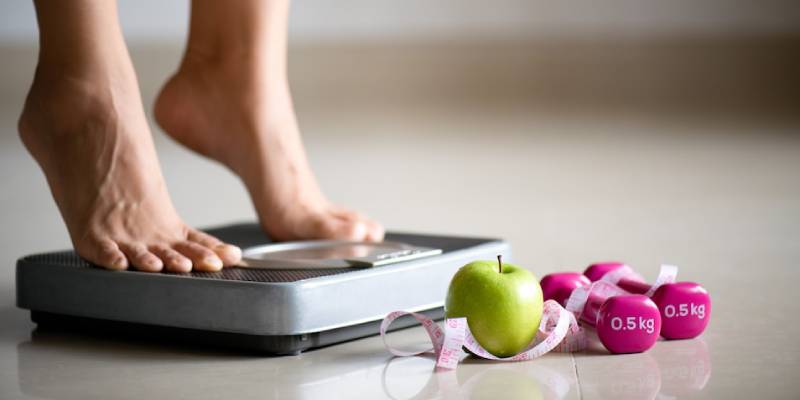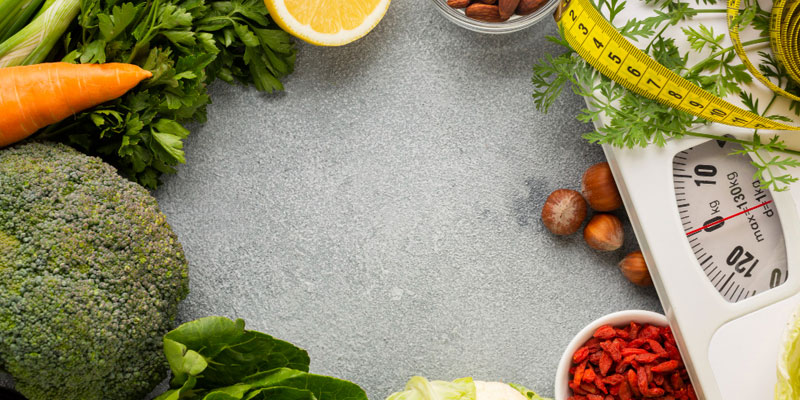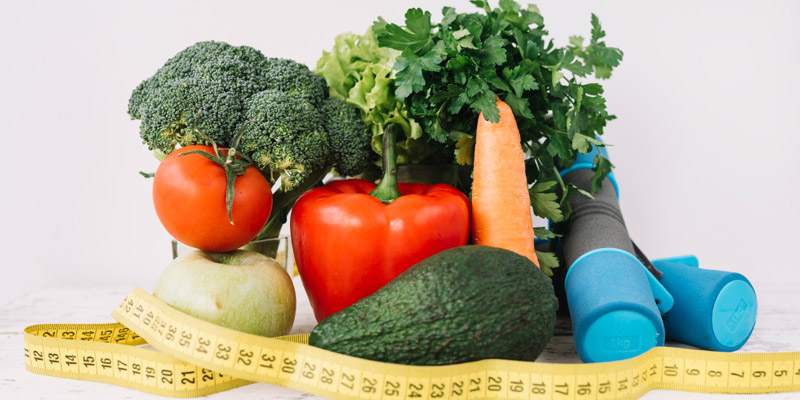
In today’s world, discussions about weight are often focused on losing those extra pounds. However, some individuals struggle to gain weight and achieve a healthy body mass. While many people might find it difficult to understand the challenges faced by those trying to gain weight, it’s important to recognize that their journey is just as valid. In this article,
we’ll delve into the world of healthy weight gain, exploring the right diet, High calorie foods, and supplements that can assist individuals in achieving their weight gain goals.
Healthy Weight Gain

It is not about indulging in unhealthy junk food or mindlessly increasing calorie intake. It’s a gradual process that involves putting on lean muscle mass while minimizing fat gain. This approach ensures that the weight gained contributes to overall health rather than compromising it.
Importance of a Balanced Diet
A balanced diet forms the foundation of successful weight gain. Incorporating a variety of nutrient-dense foods ensures that your body receives the necessary vitamins, minerals, and macronutrients it needs to thrive. Rather than focusing on empty calories, prioritize whole foods such as lean proteins, whole grains, fruits, vegetables, and healthy fats.
Choosing the Right Nutrients for Weight Increase
Certain nutrients play a pivotal role in weight increase journeys. Protein, for instance, is the building block of muscles. Increasing your protein intake helps repair and build muscle tissues, contributing to healthier body composition. Carbohydrates and healthy fats provide the energy required to fuel your workouts and daily activities, helping you make the most of your weight increase efforts.
Protein Power: Building Muscle Mass
Protein is the superhero of nutrients when it comes to building muscle mass. Incorporating protein-rich foods like lean meats, poultry, fish, eggs, dairy, and plant-based sources like legumes and tofu can significantly aid in muscle repair and growth.
Proteins are composed of amino acids, which are essential for muscle growth and repair. Leucine, an amino acid found in many protein-rich foods, plays a crucial role in stimulating muscle protein synthesis. Including a variety of protein sources in your diet ensures you get a complete range of amino acids.
Carbs and Fats: Fueling Your Gains
Carbohydrates are your body’s primary source of energy. Opt for complex carbs like whole grains, sweet potatoes, and quinoa to sustain your energy levels throughout the day. These complex carbohydrates provide a steady release of glucose into the bloodstream, preventing energy crashes and ensuring a steady supply of fuel for your workouts.
Healthy fats, on the other hand, support hormone production and overall bodily functions. Omega-3 fatty acids, found in fatty fish like salmon, flaxseeds, and walnuts, have anti-inflammatory properties that can aid in recovery after intense workouts.
The Role of Exercise in Healthy Weight Gain

While diet is crucial, exercise complements your efforts by helping you build muscle and enhance your appetite. Engage in a combination of resistance training and cardiovascular exercises to stimulate muscle growth and improve overall fitness.
Resistance training, such as weight lifting, creates micro-tears in muscle fibres. As your body repairs these tears, muscles grow larger and stronger. Cardiovascular exercises, on the other hand, improve cardiovascular health and increase your overall calorie expenditure, supporting your weight gain goals.
Hydration and Its Impact on Weight Gain
Staying hydrated is often overlooked but is essential for weight gain success. Proper hydration supports digestion, nutrient absorption, and overall bodily functions. Aim to drink adequate water throughout the day.
Water plays a crucial role in metabolic processes, including those involved in muscle building. Dehydration can hinder protein synthesis and muscle recovery. Drinking water before, during, and after exercise helps maintain optimal hydration levels.
Meal Planning and Portion Control
Meal planning is a valuable tool for those looking to gain weight. Prepare meals ahead of time to ensure you’re consuming balanced portions and avoiding excessive calorie consumption from unhealthy sources.
Portion control is important to avoid overeating and to ensure that you’re consuming enough calories without feeling uncomfortably full. Focus on nutrient-dense foods and aim for regular, balanced meals and snacks throughout the day.
Supplements for Supporting Weight Gain

Supplements can provide an extra boost on your weight gain journey, but they should never replace a balanced diet. Here are a few supplements worth considering:
Creatine: Beyond Muscle Building
Creatine is a popular supplement known for enhancing muscle strength and performance. It also draws water into muscle cells, leading to a fuller appearance.
Creatine works by replenishing adenosine triphosphate (ATP) stores, which are crucial for short bursts of intense energy. This allows you to perform better during high-intensity workouts, leading to increased muscle mass over time.
Whey Protein: A Convenient Source of Protein
Whey protein supplements are easy to incorporate and provide a concentrated dose of protein that’s quickly absorbed by the body, making it an excellent post-workout option.
Whey protein contains all essential amino acids and is rapidly absorbed by the body, making it ideal for post-workout recovery. It stimulates muscle protein synthesis and helps prevent muscle breakdown, aiding in muscle growth.
Omega-3 Fatty Acids for Enhanced Appetite
Omega-3 fatty acids support overall health and can improve appetite. They’re found in fatty fish like salmon, as well as flaxseeds and walnuts.
Omega-3s have been shown to reduce inflammation and improve appetite regulation. Including these healthy fats in your diet can support your weight increase efforts by promoting a healthy appetite.
Probiotics: Improving Nutrient Absorption
Probiotics promote a healthy gut, which in turn can enhance nutrient absorption and overall digestion, supporting your weight growth efforts.
A healthy gut microbiome is essential for efficient nutrient absorption and digestion. Probiotics can help maintain gut health, ensuring that your body absorbs all the nutrients necessary for effective weight growth.
High calorie Healthy Foods for Effective Weight Gain

Gaining weight requires consuming more calories than your body burns.
Here are some High calorie Healthy Foods with nutrient-dense that can aid in effective weight gain:
Avocado
Avocado is rich in healthy fats and provides a substantial amount of calories. It’s also packed with vitamins, minerals, and fibre, making it an excellent addition to your diet.
Avocado contains monounsaturated fats, which contribute to overall heart health and can provide long-lasting energy. Additionally, the fibre content promotes satiety and aids in digestion.
Nuts and Nut Butter
Nuts like almonds, cashews, and peanuts are calorie-dense and offer healthy fats and protein. Nut butter is versatile and can be added to smoothies, toast, or as a dip.
Nuts are nutrient powerhouses, providing a combination of healthy fats, protein, fibre, and essential vitamins and minerals. The combination of fats and protein can provide sustained energy throughout the day.
Whole Milk
Whole milk is a great source of protein, fat, and carbohydrates. It’s also rich in calcium and vitamin D, which are essential for bone health.
Whole milk is a calorie-dense beverage that can contribute to weight gain. It provides a balance of macronutrients and is a convenient way to add calories to your diet.
Cheese
Cheese is not only delicious but also calorie-dense. It provides protein and fat, making it a perfect topping for various dishes.
Cheese is a concentrated source of calories, protein, and calcium. It’s a versatile ingredient that can be added to sandwiches, salads or enjoyed as a snack.
Quinoa
Quinoa is a nutrient-rich whole grain that offers complex carbohydrates and protein. It can be used as a base for salads, bowls, or as a side dish.
Quinoa is higher in protein compared to other grains, making it an excellent choice for those looking to gain weight. It also provides fibre and various vitamins and minerals.
Olive Oil
Olive oil is a healthy fat source that can be drizzled over salads and vegetables or used in cooking to increase calorie intake.
Olive oil is rich in monounsaturated fats, which are associated with cardiovascular health. Adding olive oil to your meals can increase calorie content while providing beneficial fats.
Dried Fruits
Dried fruits like raisins, dates, and apricots are concentrated in calories and nutrients. They make for a convenient and sweet snack.
Dried fruits are a portable and calorie-dense option for increasing your daily calorie intake. However, they should be consumed in moderation due to their high sugar content.
Dark Chocolate
Dark chocolate contains healthy fats and antioxidants. Consumed in moderation, it can satisfy your sweet tooth while contributing to calorie intake.
Dark chocolate provides a small dose of healthy fats and antioxidants, making it a guilt-free treat that can help increase your calorie intake.
Conclusion
In the pursuit of a Healthy Weight Gain journey, remember the significance of balanced nutrition and strategic exercise. Embrace the power of High calorie healthy foods like avocados, nuts, and whole milk to fuel your progress.
Building muscle mass requires protein power, while carbohydrates and healthy fats keep the energy flowing. And don’t underestimate hydration’s impact and portion control’s effectiveness. Supplements can play a supportive role, with creatine and whey protein amplifying your efforts.
Remember, genetics may influence, but determination and the right approach make Healthy Weight Gain achievable for all. So, savour the process, relish the journey, and access your healthier self now!
FAQs
Is it possible to gain weight in a healthy way?
Yes, healthy weight gain involves putting on lean muscle mass while following a balanced diet and exercise routine.
What are High calorie healthy foods that can aid in weight gain?
High calorie healthy foods like avocados, nuts, whole milk, and quinoa provide a significant calorie boost while offering essential nutrients.
Can I gain weight without exercising?
Exercise contributes to muscle growth and overall health. While you can gain weight without exercise, it’s recommended to include physical activity.
How long does it take to see results in weight gain efforts?
Results vary depending on factors like genetics, diet, exercise, and consistency. It’s important to stay patient and committed.
What role does genetics play in weight gain?
Genetics can influence how your body responds to diet and exercise, but they don’t determine your success. With the right approach, anyone can achieve healthy weight growth.




